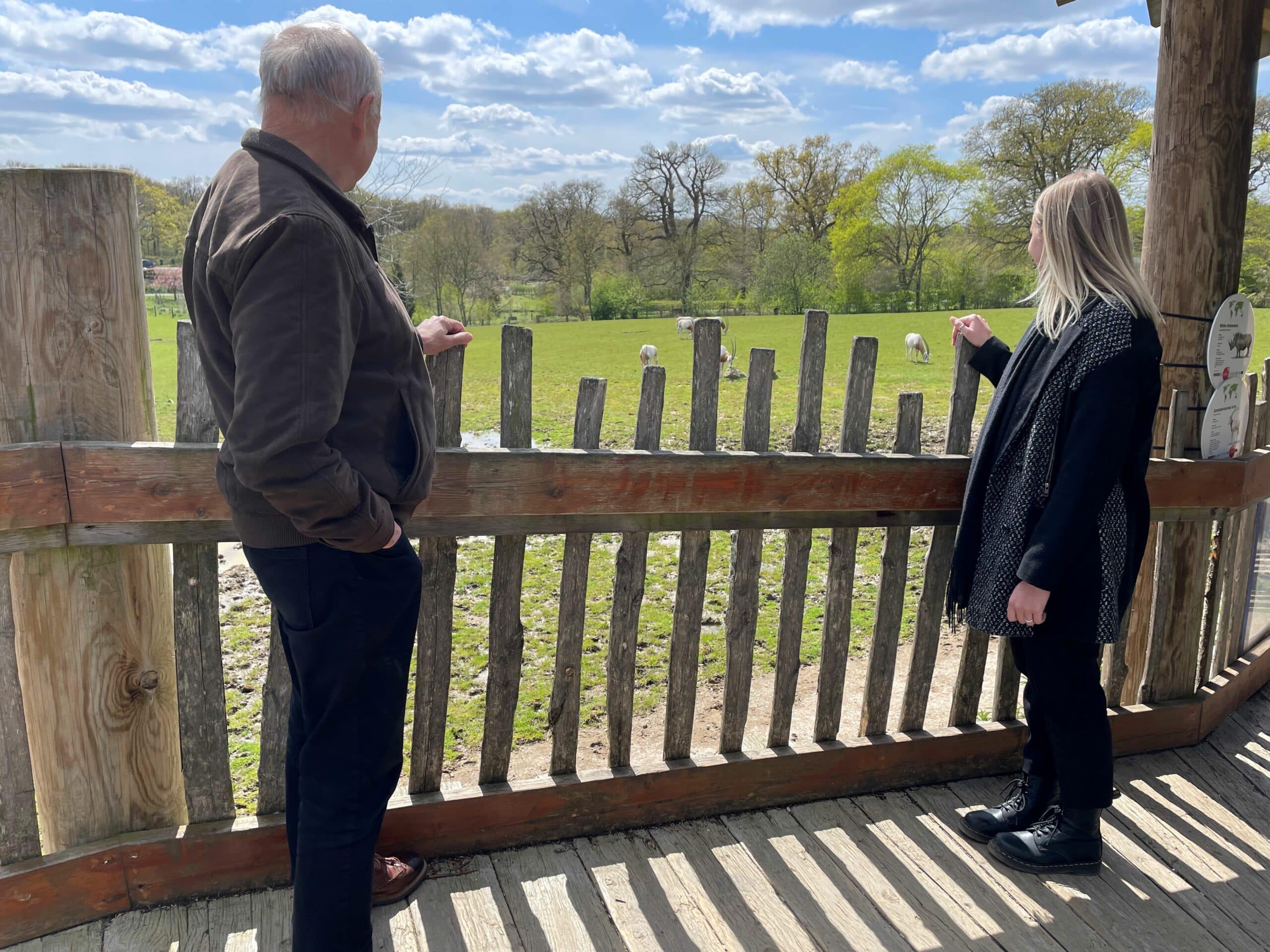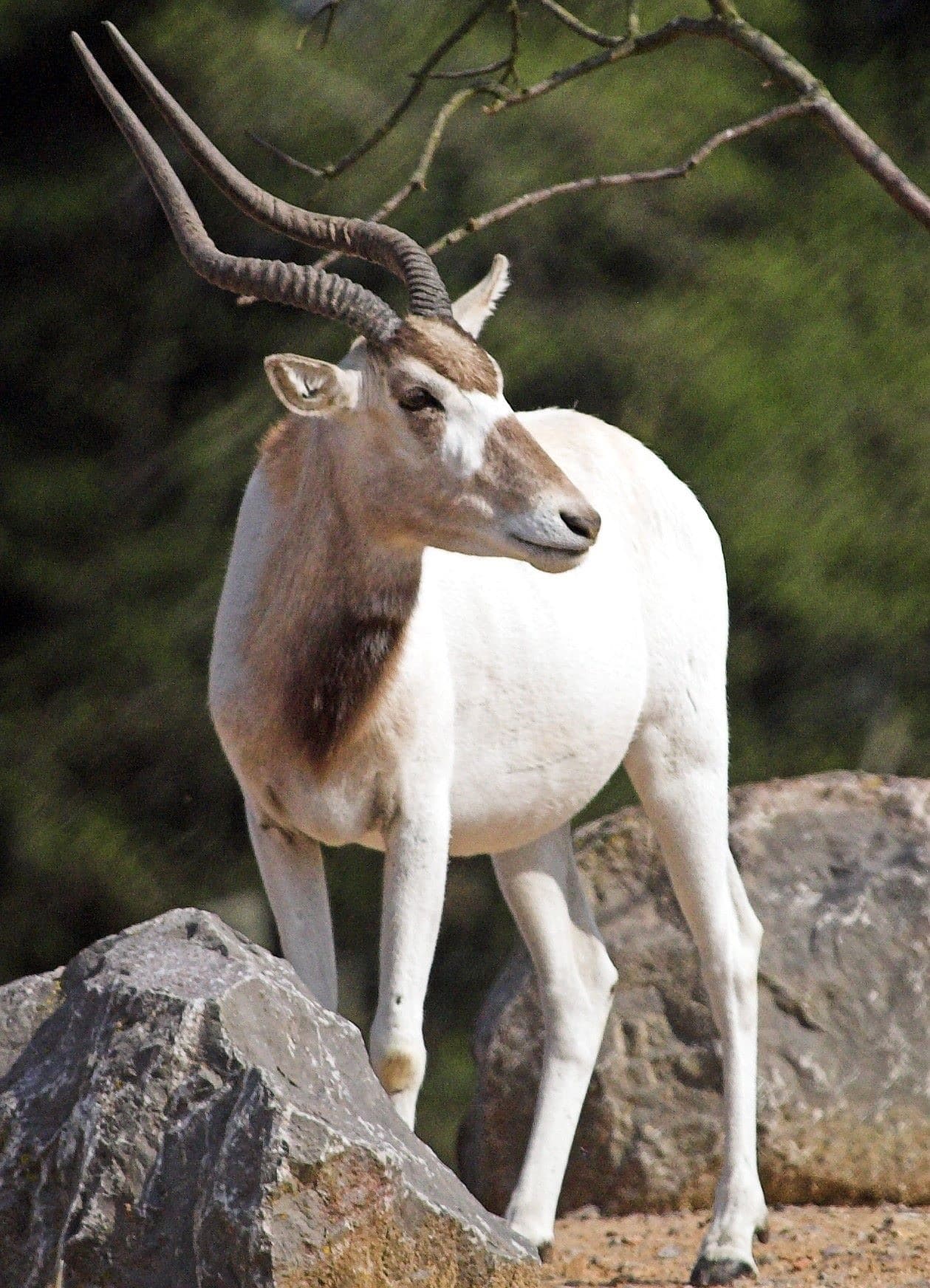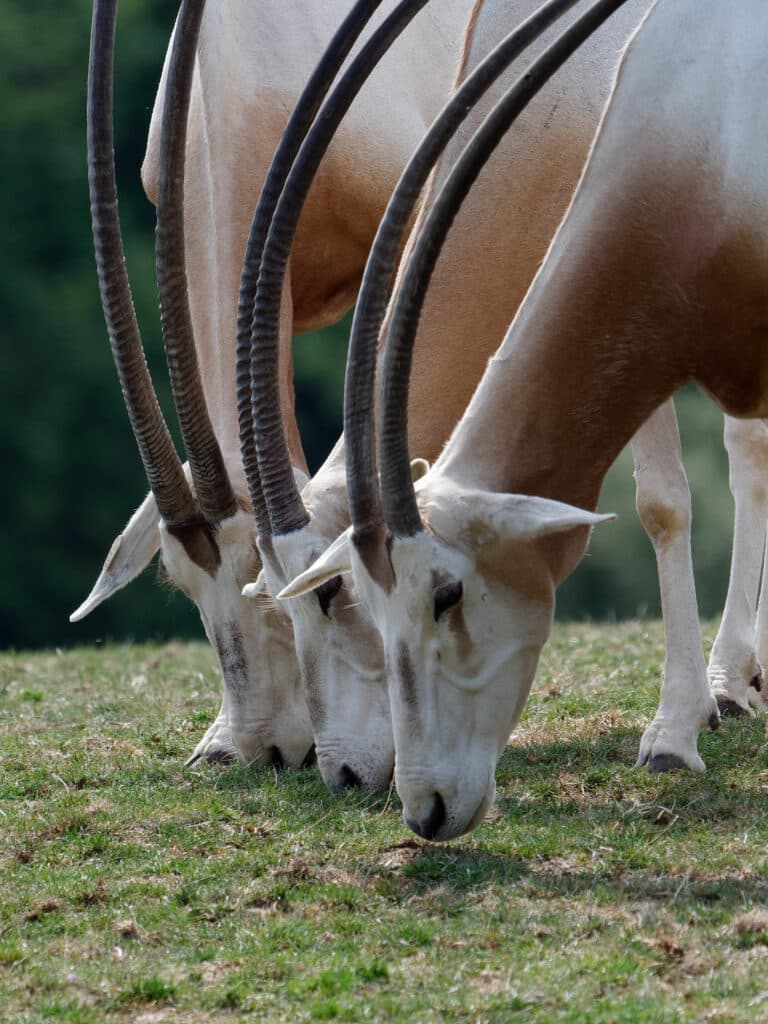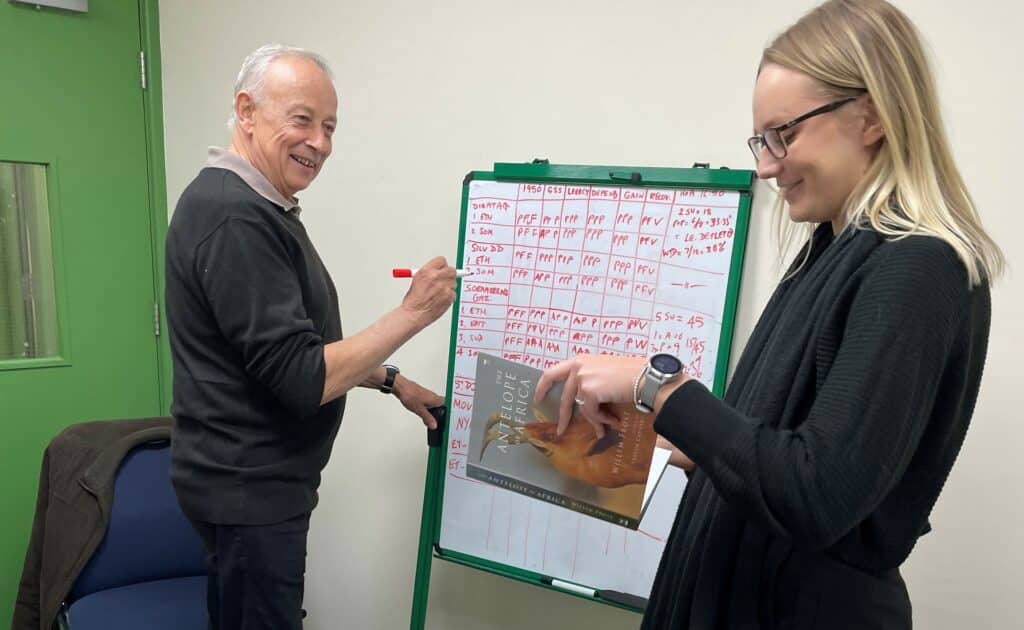Antelope Specialist Group: A Year in Review
February 26, 2024
February 26, 2024

As the new year is in full swing, it’s helpful to reflect on what’s been achieved in 2023. There was a big increase in activity from the International Union for the Conservation of Nature Species Survival Commission’s (IUCN SSC) Antelope Specialist Group (ASG).
Since 2014 Marwell Wildlife has managed the programme office for the IUCN SSC Antelope Specialist Group, so this year marks our 10th anniversary. Our support for the group goes beyond administrative tasks, including substantial involvement in the IUCN Red List and IUCN Green Status assessments. The Red List assesses the risk of extinction while the Green Status documents the recovery of species and impact of conservation action.
IUCN SSC ASG brings together global antelope experts to improve the conservation status of antelope across the world. You may think this includes a handful of species, gazelle, impala, or oryx for example, but there are actually more than 90 different species including many that are found at Marwell – addax, scimitar-horned oryx, beisa oryx, Kirks dik-dik, and more.


Over the years Marwell has been involved in conserving several high-profile antelope species. We were involved in the reintroductions and ex situ management of scimitar-horned oryx since the 1980s, and in 1989 we established and managed the European Ex Situ Programme (EEP) and European studbook until 2016. In 2005, we took responsibility for the species’ International Studbook, which we still manage to this day. Given Marwell’s historical interest in antelopes, and ungulates more generally, we are well placed to host the programme office for the specialist group.
In 2023 we began the journey of completing green status assessments for all species in our remit with the co-chairs of the specialist group, starting with those that are threatened in the wild. We grouped these into similar regions starting with six Sahelo-Saharan species from North Africa and then a further seven from the Horn of Africa, these are now almost ready to be submitted for review with the other threatened antelope following closely behind. Since 2020, only 37 Green Status of Species assessments across all taxa have been published globally. Therefore, completing 13 assessments is a significant accomplishment, and the team hopes to finalise assessments for all 30 threatened antelope species by the end of the year.

2023 was also a big year for Red List assessments with ASG assessing two high profile species that have substantially benefitted from concerted conservation action. First, we saw the re-classification of saiga antelope from Critically Endangered to Near Threatened. Second, was the re-classification of simitar-horned oryx from Extinct in the Wild to Endangered. These reassessments were important as they were the result of genuine increases in wild population sizes resulting from collaborative conservation action and showed the successes that can be achieved despite all the challenges.
We also published two editions of our newsletter ‘Gnusletter’. Which included exciting breaking news stories with suggested range revisions for Silver dik-dik and a lesser kudu spotted in Djibouti which is outside of its known range.
The co-chairs attended a number of high-profile events including Third Regional Seminar on the Conservation and Restoration of Sahelo-Saharan Megafauna and the 22nd Sharjah International Conservation Forum for Arabia’s Biodiversity and Marwell hosted two red listing & green status workshops.
In 2024 we plan to make further headway with the Green Status assessments, update priority Red List assessments and begin the development of a database to enable quicker and smoother updates to these assessment processes. We will continue to provide the day to day running of the programme office and ensure the co-chairs are supported in their work.
Find out more about the Antelope Specialist Group here.
By Sophie Whitemore, Zoologist